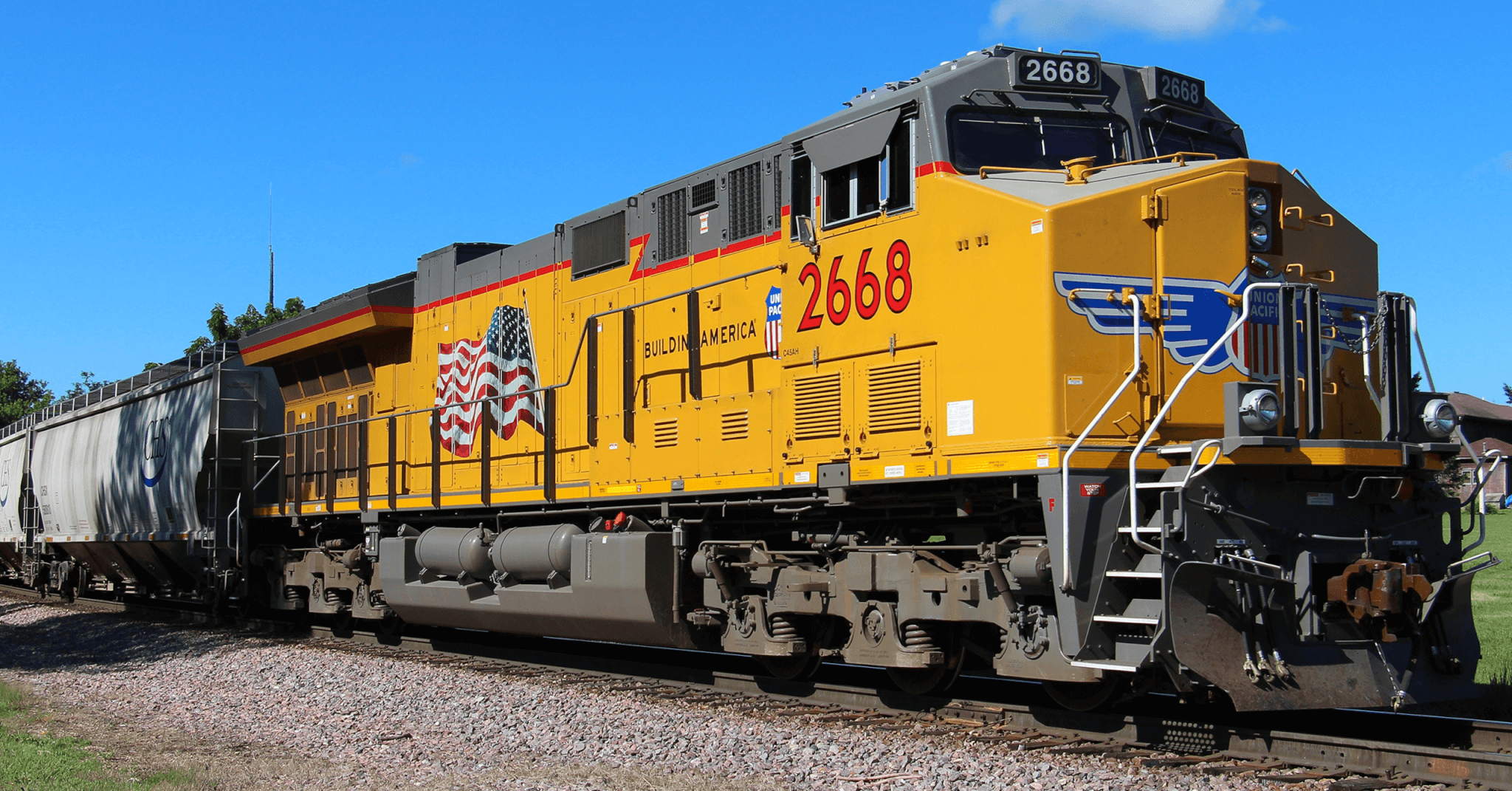Union Pacific Loses $20 Billion of Intrinsic Value in 2021

Union Pacific is considered the granddaddy of railroads. It is the most stable of all Class I Railways and generates over $20 billion per year in revenue. In 2021, Union Pacific had sales of $21.8 billion, the 2nd highest ever recorded. Union Pacific generated a pretax profit of $8.5 billion, the highest in its entire history. In effect, 2021 was one of the best, if not the best, financial years in the history of Union Pacific. But yet, Union Pacific’s intrinsic value dropped $20 billion during the same period. How can this happen?
Value investors focus on intrinsic value and the market’s valuation points. However, the Board of Directors is focused on returning value to the shareholders. Basically, the Board authorized a stock buy-back at a price dramatically higher than the stock’s intrinsic value. The difference is equivalent to transferring intrinsic value to a few lucky shareholders at the expense of remaining shareholders. This business concept of treasury stock (buying back stock) is only effective IF the stock is purchased at or less than the stock’s intrinsic value.
This site’s Railway’s Pool identified in February of 2021 that Union Pacific’s intrinsic value was estimated at $188 per share and that a good margin of safety was necessary in order to earn a good return on the investment. Thus, the buy price was set at $162 per share. The book value on 12/31/2020 was $26 per share. Book value on 12/31/2021 went down to $22 per share; yet, Union Pacific earned $10 per share during 2021.
During 2021, Union Pacific bought back 33,337,620 shares for $7.3 billion or about $218.97 per share. Union Pacific paid a premium of $31 per share over intrinsic value. Total premium paid equals $1,032,527,000. This is financially the equivalent of wasting $1 billion of earnings.
The current price-to-earnings ratio is approximately 25 to 1 (February 2022). Thus, $1 billion of earnings at a price to earnings ratio of 25:1 is the equivalent of $25 billion of value. Some of you reading this are sophisticated enough to know that this is the outside market value. Intrinsic value is an internal value, a value that is derived from the power of the company to generate wealth for its owners. For highly stable operations like Union Pacific, intrinsic value is best calculated as a function of discounted free cash flow with a very strong terminal value tied to a fair market value of its fixed assets (one of the many different intrinsic value formulas).
Under the discounted free cash flow ($6.1 billion/Year) method with a terminal value of approximately $80 billion (see Total Assets on the Balance Sheet with a step-up of approximately 25% for fair market value due to this company’s long life), the total value of Union Pacific is estimated at $98 billion. With 638.842 million shares in the market, each share’s intrinsic value is estimated at $153 per share. The facilitator of this site’s Value Investment Club believes a step-up of 25% is extremely conservative and that a more reasonable step-up is around 40% due to the fact that this company’s real value exists only as a going concern. With a 40% step-up, the terminal value increases to $100 billion, and the per share intrinsic value improves to $157 per share. Thus, intrinsic value for Union Pacific is between $153 and $157 per share.
Last year’s intrinsic value was estimated at $188 per share; the difference is estimated at $30 per share. Intrinsic value is not an exact science. With 638.842 million shares in the market, the total intrinsic value decrease is estimated at $19.2 billion.
A third and more simplistic approach utilizes book value. On 12/31/2020, the book value was approximately $26 per share. During 2021, each share earned $10 (see the financial report for Union Pacific for 2021). In addition, each share received a dividend of $4. Thus, book value, without a share repurchase program, would have improved $6 per share to $32 per share. Yet, the actual 12/31/2021 book value is $22 per share. In effect, the Board of Directors transferred $10 of value from existing shareholders to the few shareholders that benefited from the repurchase program. The historical price-to-book ratio for Union Pacific has been consistently higher than other railroads. Union Pacific’s price-to-book ratio ranges from 7:1 to over 10:1. Using the more conservative 7:1, a reasonable market price for Union Pacific is approximately $154 per share.
If the book value had improved to $32 per share from $26 per share balance on 12/31/2020, the market price for existing shareholders would also have improved by approximately $42 per share. This $42 per share value with 638.842 Million shares outstanding is a total value shift of $26.8 Billion.
Thus, overall intrinsic value has shifted a minimum of $20 billion in one year. The three different methods above illustrate this intrinsic value loss. A $20 billion reduction is reasonable and easily justifiable. The reality is straightforward: the Board of Directors of Union Pacific overpaid $1 billion to repurchase stock in the market. With a simple 20:1 price to earnings ratio, this equates to the $20 billion intrinsic value shift.
Existing shareholders of Union Pacific now have increased risk exposure for their investment. The increased risk exposure is a direct reflection of the intrinsic value each share holds. One year ago, each share was worth at least $188 per share; now, they are only worth around $155 per share. Granted, this risk exposure will decrease over time due to the fact that earnings per share will improve due to less stock to share future earnings; thus, the earnings per share will improve in the future. However, risk reduction is the number one principle exercised by value investors. Stock repurchase programs are a significant risk to value investors IF the buy-back price is greater than the intrinsic value. If a buy-back program exists for prices less than intrinsic value, intrinsic value improves, and risk goes down for value investors. This is one of the sophisticated tools a value investor utilizes when evaluating a security investment.
Union Pacific’s intrinsic value is now reset to $155 per share, and the buy point requires a 19% margin of safety; thus, the buy price for value investors is set at $126 per share. Act on Knowledge.
